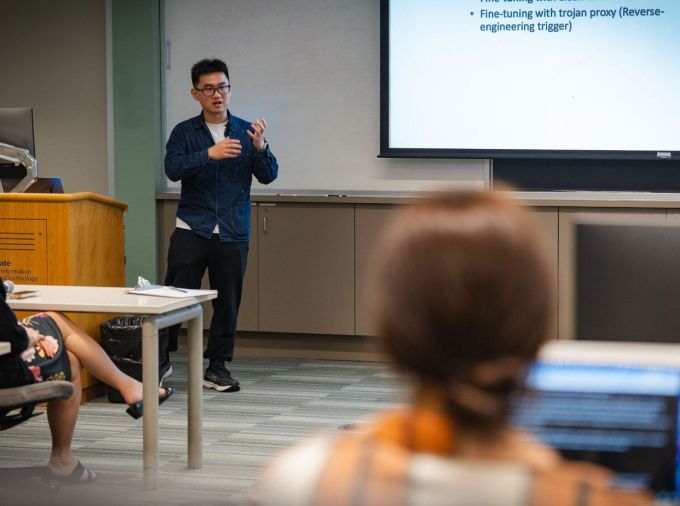
Research
Discover how our researchers are addressing the challenges that exist at the intersection of information, technology and society.
$63.6 million
External research funding credited to IST faculty since 2015
376
External research grants credited to IST faculty since 2015
$700,000+
Seed grants and matching funds awarded by IST
Research in IST focuses on systems-level thinking, higher conceptualization of global problems, and interdisciplinary connectivity. We explore innovative solutions for dealing with the complex and emerging problems that are changing the way we think, live, and engage with the world. Our faculty, students, and scholars represent the best Penn State has to offer.
Research News

December 17, 2024
Placenta assessment tool aims to improve neonatal, maternal care

April 04, 2025
Penn State to launch new National Security Institute

April 09, 2025
NCEMS working groups to answer molecular and cellular bioscience questions

January 06, 2025








